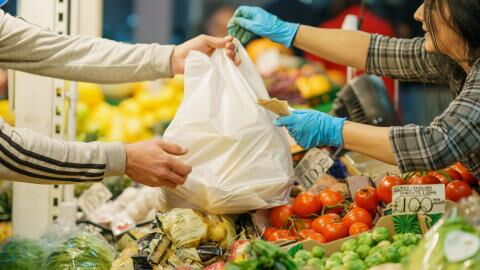Brexit has added £210 to the average UK household food bill between 2019 and 2021 according to research at the Centre for Economic Performance (CEP) at the London School of Economics. The researchers added that the price increases would disproportionately hit poorer people, as those on low incomes generally spend a larger proportion of their monthly pay on food.
Discover our latest podcast
The total amount has been calculated at £5.8 billion for consumers across the country with the surge in food costs as a result of extra checks and requirements on goods - creating an obstacle to trade with the the rest the EU bloc, as per LBC.
‘Non-tariff barriers’

The CEP have blamed a lot of the increase in prices on a rise in ‘non tariff barriers’, which are a result of Brexit. The barriers include new customs checks and measures affecting the movement of animals and plants. Whilst the Trade and Cooperation Agreement came into effect in 2021 and is supposed to ensure trade between the UK and EU, the CEP have stated it lacks the ‘depth’ necessary to keep prices down.
Co-author of the study, Dr Nkihil Datta stated, as per the Independent:
The policy implications are stark – non-tariff barriers are an important impediment to trade that should be a first-order concern, at least on par with tariffs, for policymakers interested in low consumer prices.
EU exporters and UK importers are facing higher costs as a result of the barriers, with between 50% and 88% of the cost being passed on to consumers.
How to save on your food bill
If you’re struggling to cope with the rising costs here are five ways you can help reduce your food bill, as per Good Housekeeping:
- Switch to supermarket brands - Making the switch from big name brands to supermarket own brands is one of the easiest things you can do to cut costs.
- Plan meals and portions carefully - Buying only what you need sounds obvious but with a conscious effort, you should have no food waste at all. You can also use online portion calculators for things like rice and pasta to work out exactly how much to use for the number of people you are cooking for.
- Double check you’re getting a good deal - Make sure you’re actually getting a good deal when you see offers at the supermarket as not everything is as good a deal as it first looks. Check supermarkets later in the day for better deals and consider buying more items and freezing them.
- Check the temperature of your fridge - A huge amount of food is wasted each year as it is improperly stored. Check your fridge is at the recommended temperature of 4°C or lower so your food lasts as long as possible.
- Make better use of your freezer - As mentioned earlier, the freezer can be used for things that are closed to going off, so regularly check items in your own fridge. Put anything you don’t want to eat just yet in the freezer with a dated label on it.
Sources used:
- The Independent 'Brexit has added more than £200 to UK household food bills, study finds'
- LBC 'Brexit ‘added over £200 to food bills over last two years,’ research suggests'
- Good Housekeeping '5 ways you could be cutting your grocery bill'















